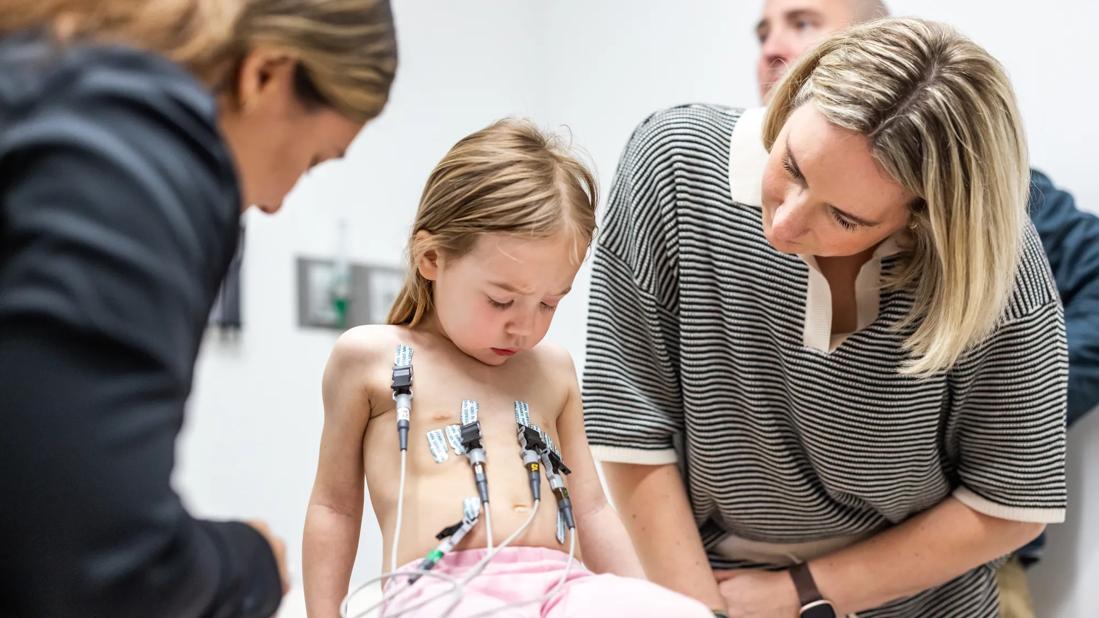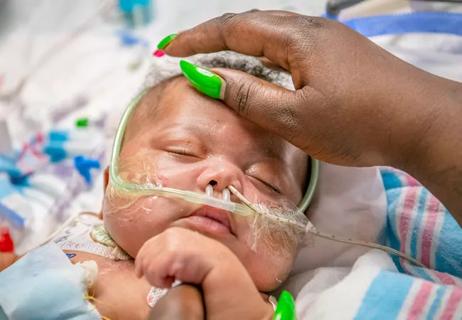Increased demand for care has led to expanded pediatric cardiology services

Patients and families may be more apt to seek pediatric cardiology care if they were aware that services are available nearby, according to Stephanie Jennings, MD, Regional Director of Pediatric Hospital Medicine at Cleveland Clinic Children’s and Division Director of Pediatrics at Cleveland Clinic Hillcrest Hospital. She says they’ve been noticing an increased demand for these subspecialty services over the past several years.
Advertisement
Cleveland Clinic is a non-profit academic medical center. Advertising on our site helps support our mission. We do not endorse non-Cleveland Clinic products or services. Policy
“Our patient population and their families are likely already familiar with Cleveland Clinic Hillcrest Hospital; additionally, we have the capacity to treat higher acuity patients due to the pediatric emergency department, which enables more specialized support—both inpatient and outpatient,” she says.
Also, since the start of the COVID-19 pandemic, some children with known cardiac indications require cardiology clearance before returning to athletics after testing positive for the virus. “We are able to see these patients quickly to determine if they need any additional testing prior to playing sports again,” says Howard J. Heching, MD, a pediatric cardiologist and Co-Director of General Cardiology at Cleveland Clinic Children’s.
The team provides general cardiology care to treat common symptoms including murmurs, chest pain, palpitations, and dizziness, along with common tests including electrocardiograms and echocardiograms. Additional services at Hillcrest Hospital include electrophysiology for rhythm abnormalities, a lipid clinic, and fetal echocardiography for expectant mothers.
Specialists like Dr. Heching and his colleagues encourage general pediatricians and family practitioners in the community to reach out with questions and to refer patients with new or concerning cardiac symptoms, or patients in whom there is a high suspicion of cardiac disease.
“We can ensure that if and when treatments are needed, they can be arranged and completed in a timely manner,” Dr. Heching says. He is hopeful that expanded access to pediatric cardiology services will have a positive impact on completing testing and scheduling interventions, when needed, more quickly for patients.
Advertisement
In addition to these expanded services, Hillcrest Hospital has a 14-bed pediatric inpatient unit staffed by Cleveland Clinic Children’s pediatric hospitalists, board-certified in pediatrics as well as board eligible or certified in pediatric hospital medicine and experienced pediatric nurse practitioners. The pediatric emergency room is staffed with pediatric-emergency-trained physicians.
“This provides a high level of comfort for families,” says Dr. Jennings. “They can stay local and enjoy ease of access during what could be a stressful time.”
Cleveland Clinic Children’s has an outstanding reputation for successfully handling the most complex cases of heart disease in children. U.S. News & World Report consistently ranks Cleveland Clinic Children’s cardiology & heart surgery program among the top programs in the nation.
“The services we offer at Hillcrest allow for the large population of children in the area to have access to world-class pediatric cardiac care in their own backyard,” says Dr. Heching.
He concludes, adding, “Our goal is to increase our accessibility, along with providing additional resources for local physicians to be able to reach our cardiologists more easily and quickly.”
Advertisement
Advertisement

Large registry study explores association between statin use and long-term outcomes

Cardiac imaging substudy is the latest paper originating from the VANISH trial

Large, multinational trial finds no significant difference in vigorous versus nonvigorous exercise

Infant with complex congenital heart anomalies thriving after biventricular circulation is restored

4-D imaging informs complex aortic valve repair in adult and pediatric patients

One pediatric urologist’s quest to improve the status quo

Overcoming barriers to implementing clinical trials

Interim results of RUBY study also indicate improved physical function and quality of life